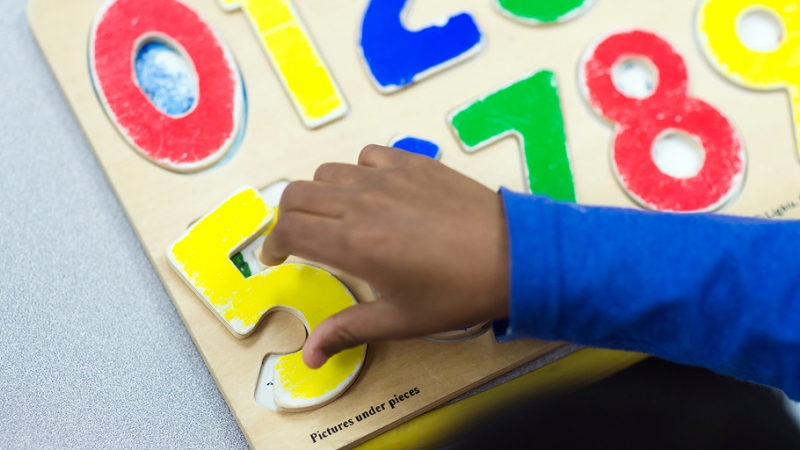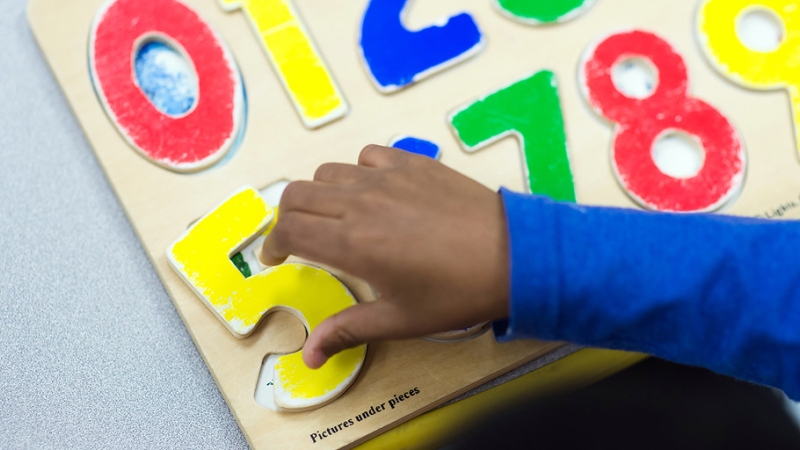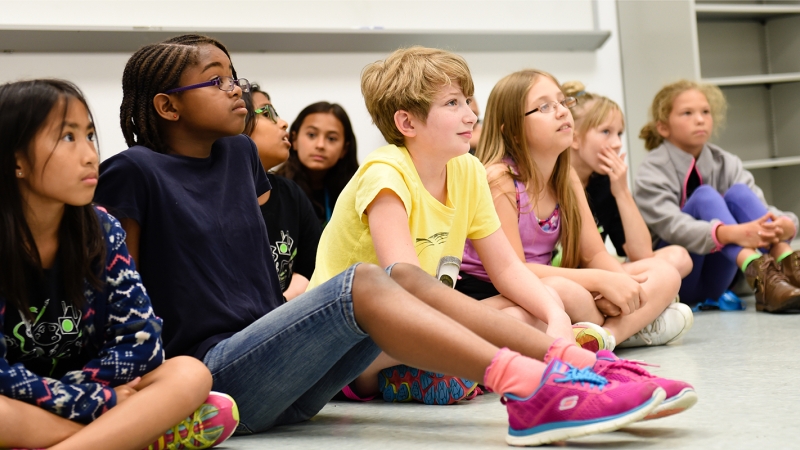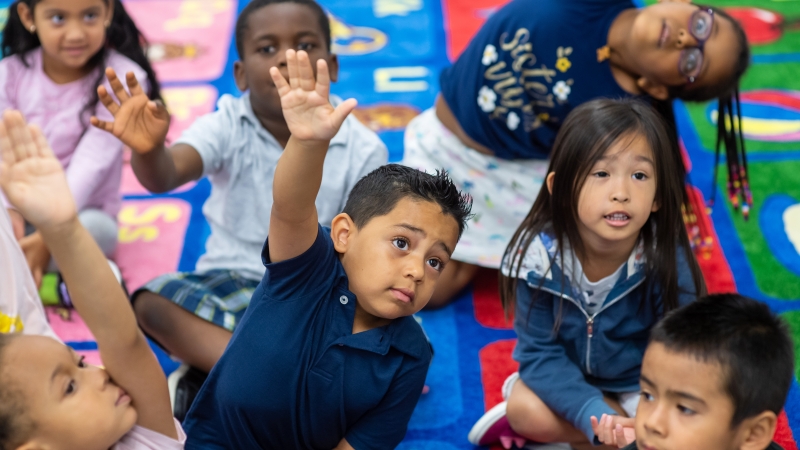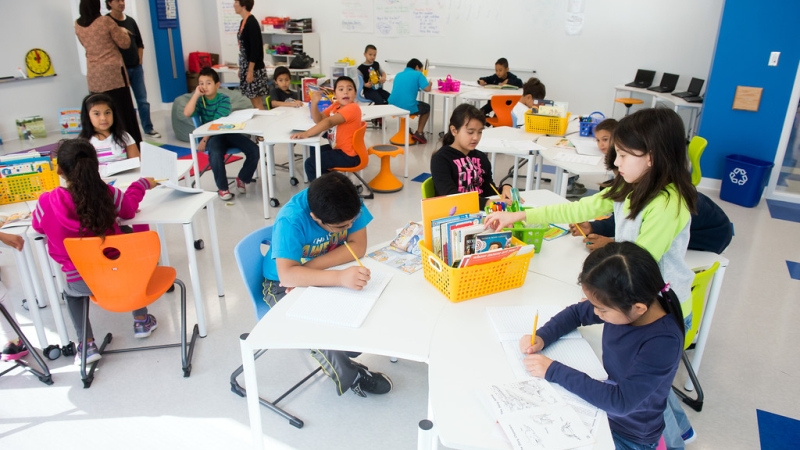
5-4-3-2-1 Early Childhood Tips for Today: Dual Language Learners
|
|
Things to Know or Do |
- Tell stories and share books together in your home language. Children have an easier time learning English when they have a strong foundation in their first language.
- Talk with your child in the language you are most comfortable, then you can have conversations that promote your child's thinking and language development.
- Talk with children about family traditions and tell stories about family members, and use these to extend your child's language.
- Have fun with language – play rhyming games, sing songs, tell riddles, and poems in your home language with your child. This stimulates their language development as well as cognitive skills.
- Keep home language print materials in your home such as books, greeting cards, magazines, and newspapers.
|
|
Children Read Alouds |
- "Yoko Writes Her Name" by Rosemary Wells (FCPS | Public Library): Yoko’s excitement about school is met with teasing by her classmates about her writing in Japanese. But they learn that friendship can bridge cultural differences.
- "Angelina’s Island" by Jeanette Winter (FCPS | Public Library): Angelina believes she’ll never feel at home in this new place, until her mother finds a wonderful surprise in the newspaper. A familiar longing for home that young immigrants will recognize.
- "Carmen Learns English" by Judy Cox (FCPS |Public Library): Starting school can be frightening if you don’t yet speak English. With a supportive teacher and growing confidence, Carmen gradually learns the new language.
- "Yara, My Friend from Syria" by Alhan Rahimi: Though she is shy, Yara’s new classmates learn that she can speak three languages. This story shows how important a child’s peers are in assimilating to a new culture and school.
|
|
Links to Visit |
- ¡Colorín Colorado! is a bilingual (English/Spanish) site for educators and families of English language learners. Of particular interest may be an article on Learning Two Languages.
- Early Childhood Learning and Knowledge Center: A series of handouts on The Importance of Home Language designed by Head Start to provide staff and families with basic information on topics related to children learning two or more languages. These handouts are available in English, Spanish, Arabic, Brazilian Portuguese, Chinese, Haitian Creole, and Russian.
- Unite for Literacy: Original, non-fiction picture e-books that provide diverse images, support beginning readers of all ages, and have narration in 39 different languages.
 |
Points to Action Research |
- Encyclopedia of Early Childhood Development: Second-Language Acquisition and Bilingualism at an Early Age and the Impact on Early Cognitive Development
- Public Policy Institute of California: Preschool and School Readiness: Experiences of Children with Non-English-Speaking Parents
|
|
Video to View |
The center for Early Childhood Education at Eastern Connecticut State University: Engaging Children in Oral Storytelling to Support Oral Language Development
When children tell stories from their own lives or make up stories, they strengthen their confidence and skills.




